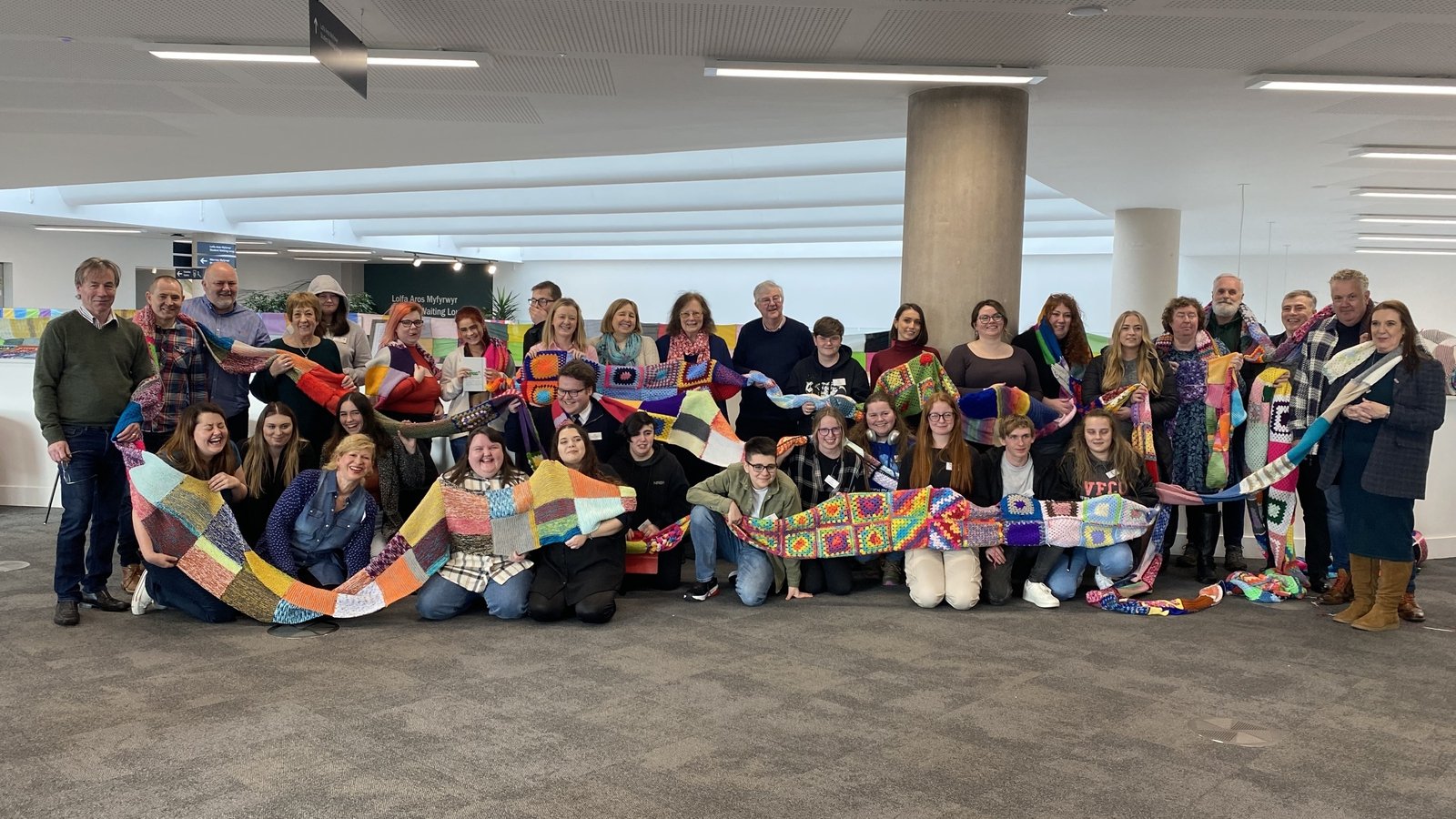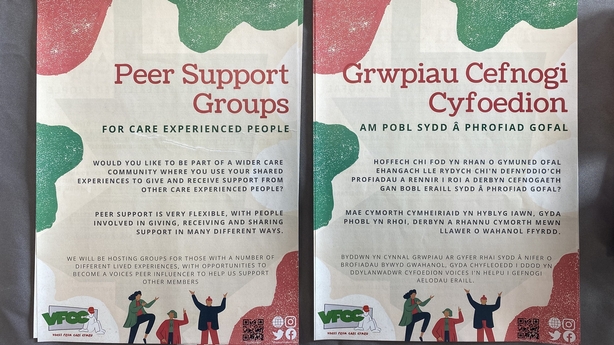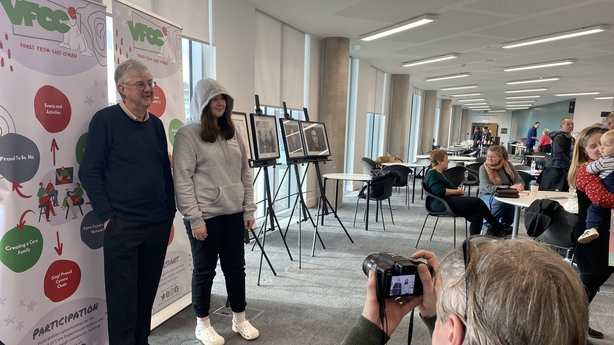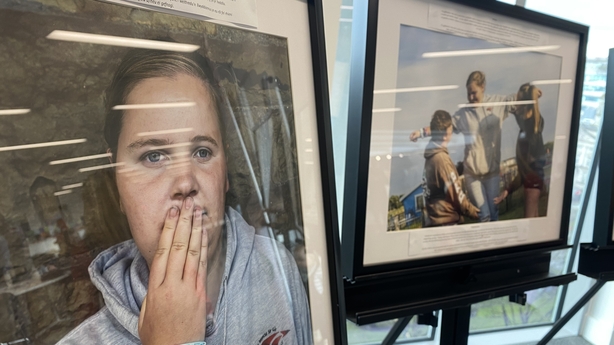Young people ask Welsh govt to remove profit from care

On a grey day in Cardiff last weekend, a group of people gathered to discuss the Welsh care system.
At the city’s university venue, a scarf claiming to be the longest in Wales offered a tapestry of colour but the message behind it was bleak.
The thousands of blocks stitched together represent children currently in the Welsh care system.
When it is complete, there will be 8,000 squares and the scarf will be over 700m long.
Among those who attended the summit were teenagers and young people whose friendships are bound by their time in care and by Voices from Care Cymru.

Set up in the 1990s, the charity is dedicated to upholding the rights and welfare of children and young people who have experienced care.
Young ambassadors for the charity have been meeting with the Welsh government for a number of years to outline how their experience of the system can be improved.
CEO Debbie Jones established the organisation in response to bad practice in the care system.
“I took it very personally and campaigned for a public inquiry to exposing child exploitation, in residential units at that time in Wales and just over the border. But people started recognising that there was very, very bad practice and very inexcusable practice in children’s homes across the world,” Ms Jones said.
The inquiry resulted in the establishment of a Commissioner for Children in Wales, a similar position to the Ombudsman for Children in Ireland.
In Wales, the care system is run by local authorities and 80% of care homes for children and young people are run by the private sector.
Through legislation, the Welsh government is removing profit from the care of children because young people asked it to, according to Welsh Deputy Minister for Social Services Julie Morgan.
At her first meeting with a group of young people who had been in care, she was told that they were not in favour of companies profiting from the difficult circumstances of their lives.
“They thought, any money that was gained should be put back into looking after them and we feel strongly that, local authorities have to pay huge amounts of monies for children to stay in specific placements and we want to make sure that all the money available goes into the young people, not into profits for private companies,” Ms Morgan said.

Indeed, the principle has been agreed by local authorities and the voluntary bodies that work with children in care.
The Welsh government is now in the process of introducing legislation which the Social Services Minister acknowledges “is a complicated thing to do” and “not universally welcome”, but the aim is that it will complete all stages in parliament within the next 12 months.
It is expected that from 2027, Wales will no longer have new people or companies making for-profit registrations.
The question is how will the Welsh government fund this?
Plans are already in place and £46m has already gone to local authorities to enable them to prepare.
While the minister acknowledged the “tricky thing” would be the transition period, she’s “absolutely confident” good care will be provided while being mindful that there will be exceptions for those who are in placements, doing well and prospering.
When the Welsh government says it has listened to the voices of young people in care, this is no exaggeration.
Five Welsh government ministers attended the summit on Saturday afternoon after which, a line of teenagers requested photos with the First Minister Mark Drakeford who leaves office in the coming weeks.

The respect from the teenagers in attendance was something to behold.
Amongst them was Rosemary Stynes, who welcomed the engagement from the Welsh government, particularly over its action on private providers.
Ms Stynes said: “It’s our sense of worth. It’s our sense of self and I think that for a young person growing up, thinking that they’re only in an environment because someone’s making money from it, that’s awful.
“Feeling loved shouldn’t be a difficult thing to achieve. What should be basic and just expected isn’t always the case, and it’s nice and reassuring to see that there are adults that feel that way.”
What is occurring in Wales has not gone unnoticed by those working in the sector in Ireland.
The Director of Services for Don Bosco Care in Ireland, which provides residential care to young people and aftercare to those over 18, was in attendance.
Terry Dignan believes Ireland could learn from what’s happening in Wales because “they’re basically saying children are not a commodity”.
Mr Dignan said: “Ethically their belief is that you shouldn’t be making profit off the care of children, that it’s responsibility of families in the first instance, but where those families not available or can’t do that, then it is the responsibility of the State and those agencies working with the state but not-for-profit.”
Wales has seen the impact of private for-profit care and has recognised the danger according to Mr Dignan.
“They’ve seen the impact it has had and they’re honestly and openly trying to address it, which I think is really admirable”, he added.





